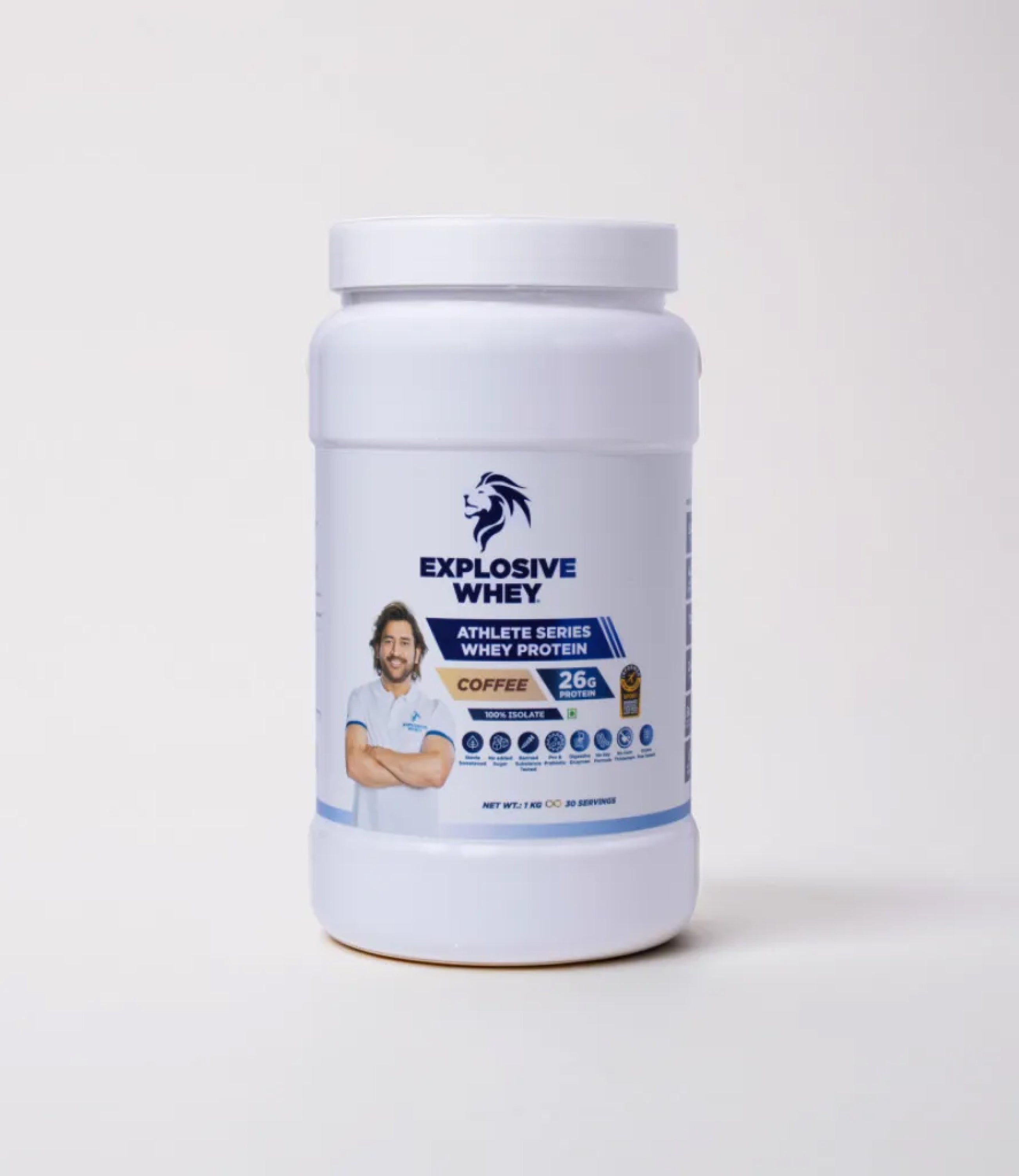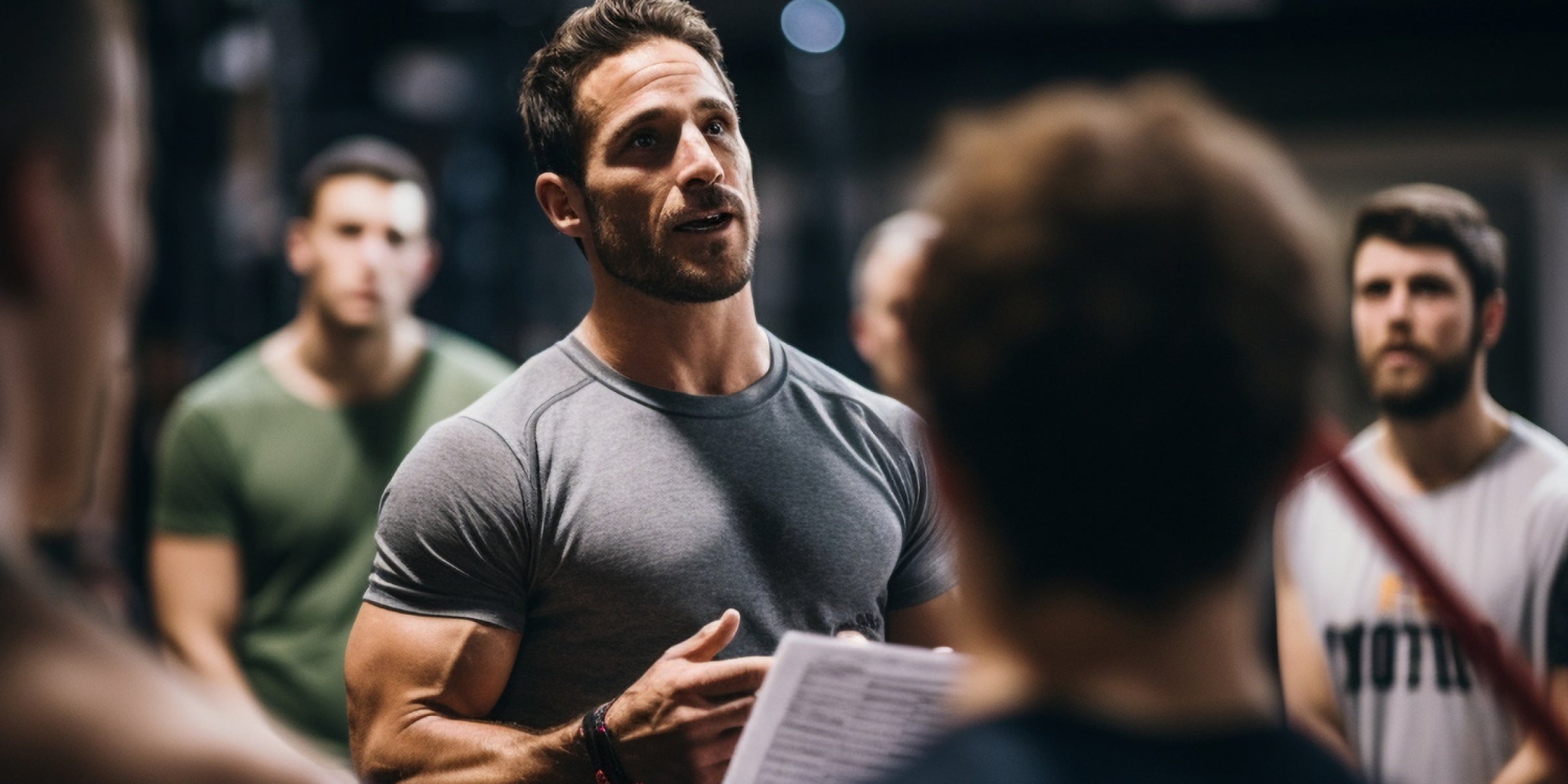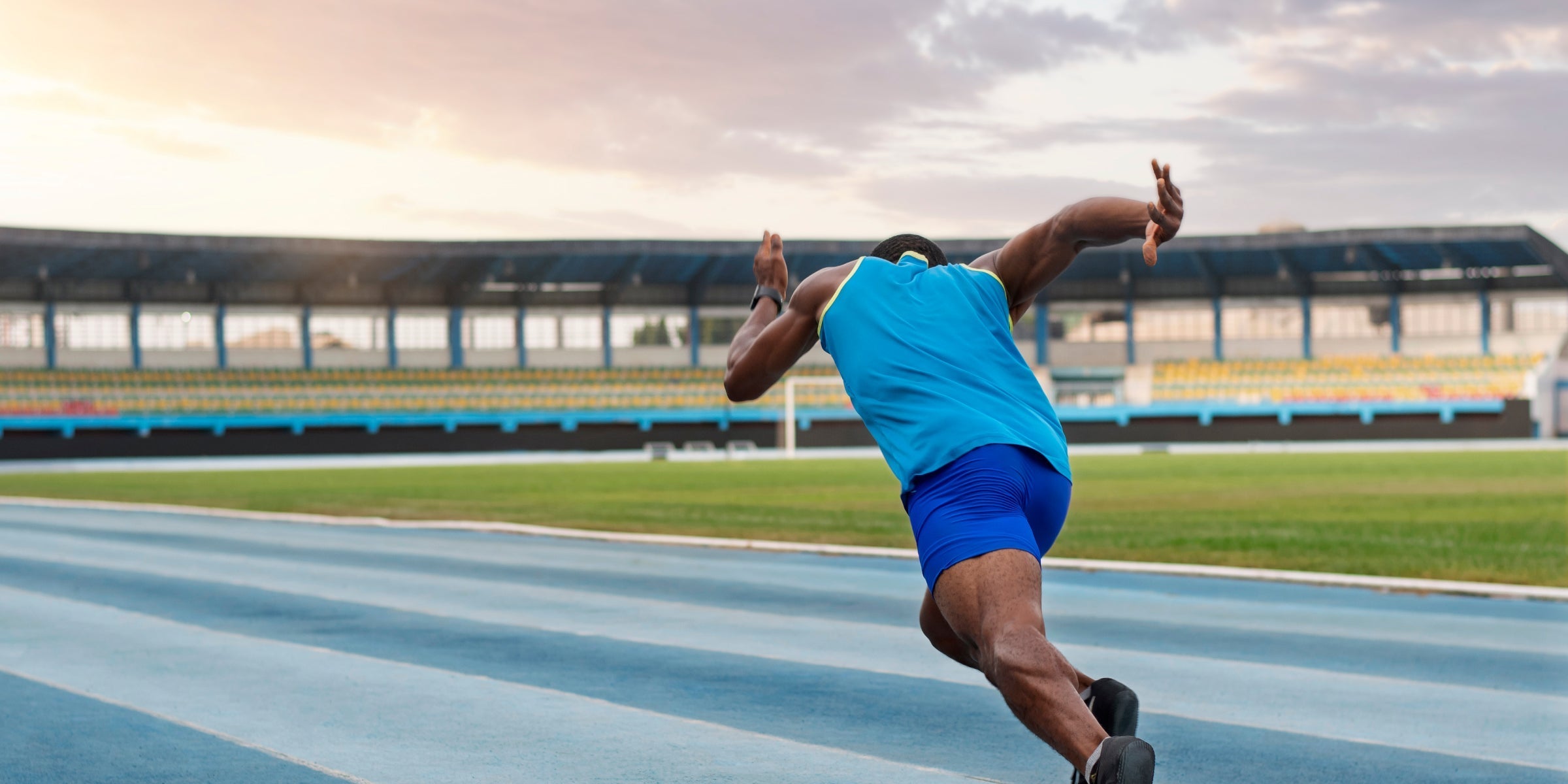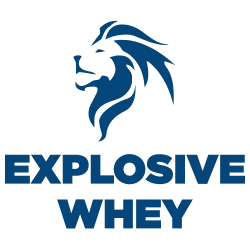In the world of athletics, achieving peak performance extends beyond rigorous training routines – it hinges on a foundation built with precision and care, known as sports nutrition. This integral aspect ensures that athletes not only meet their energy demands but also optimize their overall well-being. Encapsulates the essence of this discipline, underscoring its indispensable role in athletic success.
Decoding the Power of Sports Nutrition
Unlocking the potential of athletic prowess begins with a comprehensive understanding of nutrition plans for athletes. This holistic approach integrates principles of nutrition and exercise science, guiding athletes toward optimal performance and recovery. As we delve into the intricacies of a well-balanced nutrition diet and the strategic use of supplements, a roadmap emerges – one that empowers athletes to navigate the dynamic landscape of sports with vigor and resilience. Through this lens, we decipher the nuanced interplay between nutrition and athletic achievement, laying the groundwork for unparalleled success.
Key components of a sports nutrition diet
Macronutrients - Carbohydrates, Proteins, and Fats
In sports nutrition, macronutrients are pivotal. Carbohydrates fuel intense activities, proteins support muscle resilience, and fats contribute to energy balance and hormonal functions. Crafting a diet with these macronutrients is fundamental for optimal athletic performance.
Micronutrients - Vitamins and Minerals
Micronutrients, encompassing vitamins and minerals, play a crucial role in athlete well-being. A diverse diet, rich in fruits, vegetables, and whole grains, provides these micronutrients, promoting not only athletic prowess but also robust immunity and efficient recovery. Achieving peak performance extends beyond macros, embracing the nuanced impact of micronutrients.
Hydration
Hydration is a linchpin in sports nutrition, impacting both performance and recovery. Adequate fluid intake is essential for preventing dehydration and optimizing physiological functions during exertion. In the dynamic realm of sports, maintaining fluid balance is a cornerstone, emphasizing the symbiotic relationship between hydration and athletic excellence.
Customizing Sports Nutrition for Different Sports
Cricket

In tailoring sports nutrition for cricket, a nuanced approach is essential. The synergy between nutrition and cricket involves addressing specific energy demands and ensuring peak performance on the field.
Energy Requirements
Understanding the sport-specific energy needs in cricket, a balanced sports nutrition diet should focus on:
- Carbohydrates for quick energy bursts.
- Proteins to support muscle recovery.
- Fats for sustained energy.
- Adequate hydration to combat fluid loss.
- Supplements for targeted nutritional support.
Pre-match Meal Suggestions
Crafting pre-match meals aligning with sports nutrition principles involves
- Carbohydrate-rich foods like whole grains.
- Lean proteins for sustained energy.
- Limited fats to avoid digestive discomfort.
- Hydration with electrolyte-rich drinks.
- Including fruits for vitamins and minerals.
Hydration Strategies
Crucial hydration strategies in cricket encompass:
- Consistent sips of water throughout the match.
- Electrolyte supplements to replenish lost minerals.
- Avoiding sugary drinks for optimal hydration.
- Monitoring urine color for hydration status.
- Integrating supplements to enhance electrolyte balance.
Badminton

Tailoring a nutrition chart for badminton is crucial to meet the specific demands of this fast-paced sport. The intersection of nutrition and badminton involves addressing agility, endurance, and effective recovery strategies.
Agility and Endurance Demand
- Rapid directional changes demand quick energy.
- Endurance is essential for prolonged rallies.
- Intense bursts of speed require glycogen stores.
- Muscle strength contributes to powerful shots.
- Sports nutrition supplements aid in sustaining energy levels.
Proper Fueling for Badminton Players
For badminton players, a well-structured nutrition diet includes
- Carbohydrates for quick energy release.
- Lean proteins for muscle repair.
- Moderate fats to support overall energy.
- Hydration to prevent dehydration during matches.
- Supplements for targeted nutritional support.
Recovery Nutrition Tips
Post-badminton, prioritize recovery with
- Protein-rich snacks for muscle repair.
- Carbohydrates to replenish glycogen stores.
- Hydration with electrolyte-rich drinks.
- Adequate rest for overall recovery.
- Utilizing supplements to enhance recovery processes.
Tennis

Navigating the intersection of sports nutrition and tennis is paramount for players seeking peak performance on the court. A tailored nutrition approach is essential to address the unique demands of tennis.
Balanced Nutrition for Optimal Performance
- Incorporate carbohydrates for sustained energy.
- Lean proteins aid in muscle repair and stamina.
- Healthy fats contribute to overall energy balance.
- Hydration is crucial to prevent dehydration.
- Supplements enhance specific nutritional needs.
Pre-Match Nutrition Planning
- Prioritize complex carbs for lasting energy.
- Include lean proteins for muscle support.
- Moderate fats for sustained performance.
- Tailoring a pre-match nutrition diet is vital for tennis players aiming to optimize their on-court performance.
|
Nutrient |
Timing |
Examples |
|
Carbohydrates |
3-4 hours before the match for sustained energy |
Whole grain pasta, brown rice |
|
Protein |
2-3 hours before the match for muscle support |
Grilled chicken, tofu stir-fry |
|
Fats |
3-4 hours before the match for sustained energy |
Avocado toast, nuts, and seeds |
|
Hydration |
Throughout the day and sipping during the match |
Water, electrolyte-rich sports drinks |
|
Sports Nutrition Supplements |
As per individual product recommendations or guidance from a sports nutritionist |
Whey protein, plant protein, multivitamins, BCCAs, Creatine, glutamine, and Omega-3. |
Supplements Suitable for Tennis Players
- Electrolyte Supplements: Aid in maintaining hydration and replacing lost minerals during intense matches.
- Branched-Chain Amino Acids (BCAAs): Support muscle recovery and reduce fatigue.
- Multivitamins: Ensure adequate micronutrient intake for overall health.
- Omega-3 Fatty Acids: Contribute to joint health and reduce inflammation.
- Caffeine Supplements: Enhance focus and endurance during long matches.
Football

In the realm of football, the synergy between nutrition for football players and performance is paramount. Tailoring a nutrition diet to meet the energy demands of this dynamic sport plays a pivotal role in maximizing on-field potential.
Energy Demands and Nutrient Timing
Understanding football's rigorous energy demands necessitates strategic nutrient timing. Prioritize carbohydrates pre-game for fuel, proteins post-game for recovery, and stay hydrated throughout, emphasizing the essence of nutrition principles.
Meal Plans for Football Players
- Pre-Game Fuel
- Halftime Boost
- Post-Game Recovery
- Hydration Station
- Nighttime Nourishment
Beneficial Supplements for Football Athletes
- Whey Protein
Aids in Muscle Recovery Post-Game.
- Omega-3 Fatty Acids
Support joint health and reduce inflammation.
- BCAAs (Branched-Chain Amino Acids)
Assists in muscle repair and reduces fatigue.
- Multivitamins
Ensure overall micronutrient intake for optimal health and performance.
Kabaddi

Kabaddi, with its high-intensity nature, demands meticulous attention to nutrition. The interplay between the demands of kabaddi and tailored nutritional strategies is crucial for optimal performance.
High-Intensity Nature and Nutritional Need
Given kabaddi's high-intensity bursts, nutritional needs revolve around quick energy replenishment, muscle endurance, and effective recovery. Aligning principles with these needs is pivotal for kabaddi players.
Examples of Pre and Post-Match Meals
|
Timing |
Pre-Match Meal |
Post-Match Meal |
|
2-3 Hours Before |
Brown Rice with Grilled Chicken |
Quinoa Salad with Tofu and Vegetables |
|
1 Hour Before |
Banana with Almond Butter |
Greek Yogurt Parfait with Berries |
|
Immediately After |
Energy Bar with Water |
Protein Smoothie with Spinach and Banana |
Hydration Techniques for Kabaddi Players
- Consistent Sips: Take small sips of water throughout the match.
- Electrolyte-Rich Drinks: Include drinks with electrolytes to maintain balance.
- Post-Match Rehydration: Consume water or electrolyte drinks immediately after the match.
- Monitor Fluid Loss: Weigh yourself before and after the match to gauge fluid loss and adjust hydration accordingly.
- Pre-Match Hydration: Begin hydrating well in advance, ensuring optimal fluid levels before the game starts, a crucial aspect of sports nutrition for Kabaddi players.
- Coconut Water: Integrate coconut water as a natural electrolyte source, providing hydration and replenishing minerals lost during intense physical activity.
- Avoid Sugary Drinks: Steer clear of sugary beverages that can hinder hydration; opt for water or sports drinks with controlled sugar content.
- Individualized Hydration Plans: Develop personalized hydration strategies considering factors like climate, individual sweat rate, and intensity of the match for effective sports nutrition tailored to each player.
- Recovery Hydration: Extend hydration practices beyond the game by consistently drinking fluids in the post-match recovery period, promoting efficient recovery and reducing the risk of dehydration-related issues.
Wrestling

In the world of wrestling, the intricate balance between weight management and proper nutrition is pivotal. Wrestlers navigate the synergy between principles and the unique challenges posed by their sport.
Weight Management and Proper Nutrition
For wrestlers, the intersection of nutrition and weight management is a delicate dance. Striking the right balance ensures athletes maintain strength and energy while meeting specific weight class requirements, highlighting the importance of a carefully crafted nutrition diet.
Pre-Competition Meal Suggestions
- Complex Carbs: Opt for brown rice or sweet potatoes.
- Lean Proteins: Include grilled chicken or turkey.
- Limited Fats: Choose sources like nuts or avocados.
- Hydration: Drink water or sports drinks.
- Timing: Consume the meal 2-3 hours before the competition.
- Fiber-rich Vegetables: Incorporate veggies like broccoli or spinach for added vitamins and minerals, promoting overall health.
- Low-Glycemic Fruits: Opt for fruits like berries or apples to provide a sustained release of energy, avoiding rapid blood sugar spikes.
- Whole Grain Pasta: Another excellent complex carb option, offering a steady energy supply for prolonged physical activity.
- Lean Fish: Consider adding fish like salmon or tuna, rich in omega-3 fatty acids for anti-inflammatory benefits and cardiovascular support
- Greek Yogurt: A source of protein and probiotics, aiding digestion and supporting gut health, crucial for optimal sports nutrition.
Recovery Nutrition for Wrestlers
- Protein-Rich Snack: Greek yogurt or a protein bar.
- Carbohydrates: Include fruits for quick energy replenishment.
- Hydration: Consume water with electrolytes.
- Post-Competition Meal: Lean protein like fish or tofu with quinoa.
- Sports Nutrition Supplements: BCAAs or whey protein for efficient muscle recovery.
- Healthy Fats: Integrate sources like almonds or flaxseeds to support joint health and provide a steady source of energy during recovery.
- Antioxidant-Rich Foods: Incorporate berries or dark leafy greens to help combat oxidative stress, aiding in the overall healing process.
- Complex Carbohydrates: Choose whole grains such as brown rice or oats to replenish glycogen stores and sustain energy levels for extended recovery.
- Compression Gear: Consider wearing compression garments to enhance circulation, reduce muscle soreness, and facilitate a quicker recovery post-wrestling.
- Rest and Sleep: Prioritize adequate sleep and rest to optimize recovery, allowing the body to repair tissues and consolidate gains made during training and competition.
Sports Nutrition Supplements

Understanding Supplements for Athletes
In the realm of sports nutrition, comprehending supplements is integral for athletes aiming to optimize their performance. Supplements serve as valuable additions to a well-rounded diet, addressing specific needs and enhancing overall health.
Essential Supplements to Consider
Exploring essential supplements opens a gateway to targeted nutritional support. These supplements play a vital role in meeting the unique demands of athletes, contributing to recovery, muscle growth, and overall well-being.
Whey Protein and Plant Protein
Whey protein, derived from dairy, and plant protein, sourced from plants like peas or hemp, are pivotal supplements. They provide essential amino acids, aiding in muscle repair and growth for athletes following a diverse diet.
Omega-3
Omega-3 fatty acids, often derived from fish oil, stand out as a crucial supplement in sports nutrition. Known for their anti-inflammatory properties, Omega-3 supplements support joint health and contribute to overall well-being, aligning with the principles of a comprehensive diet.
BCAAs (Branched-Chain Amino Acids)
BCAAs are indispensable sports nutrition supplements, consisting of essential amino acids like leucine, isoleucine, and valine. They facilitate muscle protein synthesis, reduce muscle soreness, and serve as a valuable addition to the nutrition arsenal for athletes.
Glutamine
As a sports nutrition supplement, glutamine plays a key role in supporting the immune system and aiding muscle recovery. It becomes particularly relevant for athletes undergoing intense training, emphasizing its significance in a well-rounded nutrition regimen.
In summary, the discussion underscores the vital link between nutrition, a well-designed diet, and targeted supplements in optimizing athlete performance. Recognizing the individualized nature of these plans is crucial, reaffirming the significance of personalized approaches to fueling athletes for success in their respective sports.
FAQs
Q1) What is sports nutrition?
Sports nutrition focuses on optimizing dietary intake to support athletic performance, recovery, and overall well-being for athletes.
Q2) What are the 3 principles of sports nutrition?
Three Principles of Sports Nutrition:
- Balanced Macronutrients: Ensure adequate intake of carbohydrates, proteins, and fats.
- Hydration: Maintain proper fluid levels for optimal performance.
- Timing and Proportion: Consume nutrients strategically around training sessions for maximum benefit in sports nutrition.
Q3) What are the top 5 benefits of sports nutrition?
Five Benefits of Sports Nutrition:
- Enhanced Performance: Optimizes energy levels and endurance.
- Faster Recovery: Supports muscle repair and reduces fatigue.
- Injury Prevention: Boosts overall resilience and aids in tissue health.
- Body Composition: Assists in maintaining an ideal weight and muscle mass.
- Improved Focus: Enhances mental clarity and concentration for athletes.
Q4) Why is sports nutrition important?
Sports nutrition is vital for athletes as it fuels training, aids recovery, and promotes overall health, ensuring sustained peak performance and longevity in competitive sports.










Leave a comment
This site is protected by hCaptcha and the hCaptcha Privacy Policy and Terms of Service apply.